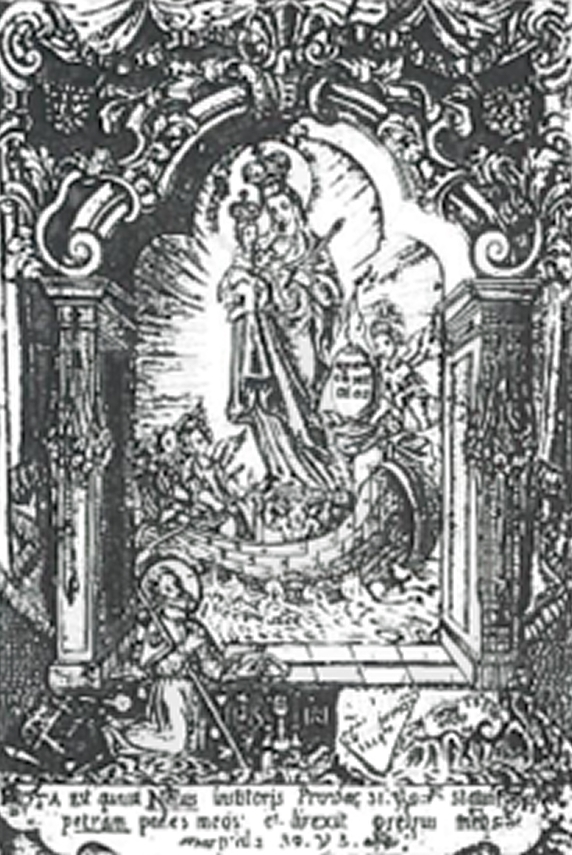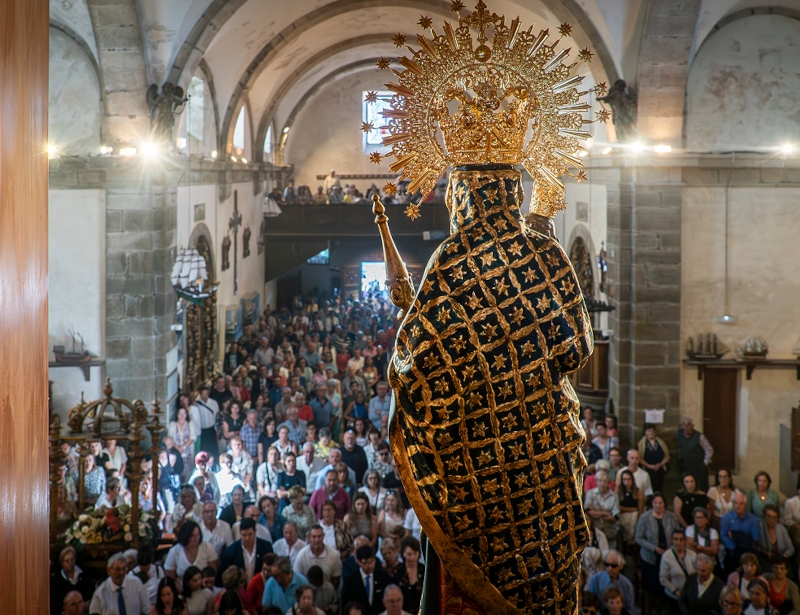History
Origins
The “Virgen de la Barca” Festival emerged as a natural expression of this fervent devotion, having as its epicentre the majestic sanctuary facing the sea. A devotion that also has another of its references in the healing rocks that surround the church and that would be part of the boat in which the Saint would have appeared to the Apostle James, to encourage him to continue with his evangelizing work in the area.

Early references
Although the first documented references to the celebration date back to medieval times, it was during the Baroque period that pilgrimages to Muxía experienced a significant boom. A trend that continued to grow over the centuries, as attested by the accounts of numerous travellers and pilgrims, both national and foreign.
Evolution
Among them are also leading writers, such as the Galician poet par excellence, Rosalía de Castro, or the writer López Abente, who was the creator of the Hymn of the Boat. You will hear this song during several of the festive days of the “Virgen de la Barca” Festival, at the end of the Eucharist in the Sanctuary.

Contemporary era
Starting in the 20th century the celebration experienced a significant boost, reaching an outstanding milestone when it was declared a Festival of National Tourist Interest in 1989 and aspiring, at present, to make the leap to the international arena. Not surprisingly, every year more and more foreign visitors come to Muxía to experience the celebration up close and live a memorable experience.